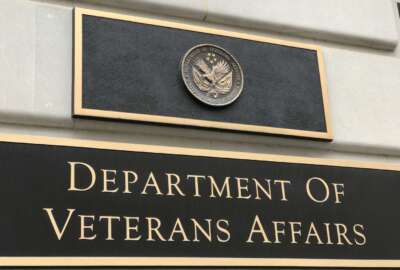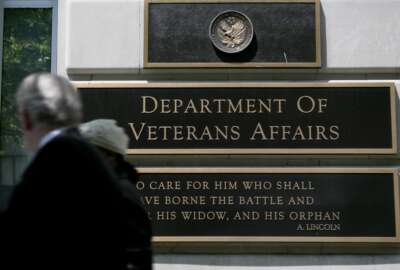

AFGE, which represents around 283,000 VA employees, said 70% of respondents reported needing more administrative and support staff, and 64% said there are vacant...
The American Federation of Government Employees and the Veterans Healthcare Policy Institute are calling on leaders in Congress and the Department of Veterans Affairs to fully fund, staff and expand VA resources.
The demand comes after AFGE published a survey of 2,300 VA employees and veterans and found that 50% of respondents reported budget shortages closed VA beds, units and programs. 88% of respondents said their facility needs more clinical frontline staff. One facility had to close four inpatient units.
“Over half of our hospital beds are closed due to staffing,” one respondent said. “They even shut down our oncology ward and are doing chemo on acute care wards. Surgeries have been postponed because of lack of beds due to staffing.”
Sixty percent of respondents reported losing key resources, such as staff, over the last four years.
AFGE, which represents around 283,000 VA employees, said 70% of respondents reported needing more administrative and support staff, and 64% said there are vacant positions for which no recruitment is taking place.
“What a facility might define as a critical staffing shortage might be quite different than what they have listed as a vacancy,” Julie Kroviak, deputy assistant inspector general for healthcare inspections in the VA’s Office of the Inspector General, said in an interview on The Federal Drive with Tom Temin.
The criteria to define a shortage as “critical” is in the Code of Federal Regulations.
“You could have 100 vacancies in pharmacy and still not rank that as a critical shortage,” she said.
A respondent at one facility reported 48 physician vacancies. Another said a staff of 12 full-time outpatient psychiatrists has been whittled down to one.
More than 20% of respondents said they have partially shifted their work away from direct veteran care toward monitoring and coordinating more expensive private sector care.
Even more, 40% of respondents said they have less time to deliver direct patient care and support services because of outsourcing duties. The outsourcing and coordination led to nearly 70% of respondents saying that more veterans are being sent outside of the VA for care.
Forty percent of respondents also said the human resources modernization process has increased delays in hiring.
Kroviak said there are shortages in both clinical and nonclinical staff. She identified janitorial jobs as one of the leading nonclinical shortages.
“I suspect COVID weighed into that. There are increasing demands on [janitorial] workers,” she said. “They’re lower on the pay scale so you see a lot of turnover and a lot of competition amongst communities where there’s a higher paying community hospital.”
VA data showed at the end of the second quarter there were 64,909 vacancies.
According to the Partnership for Public Service’s August report on federal attrition rates, the VA had the highest attrition rate at 7.1%, an increase from its 6.4% rate last year, and 1% higher than the governmentwide average.
“For too long, VA workers have been asked to do more with less,” AFGE President Alma Lee said in the release. “VA leadership must continue to work with its union partners to address this staffing crisis and ensure the VA is equipped to provide the critical, direct services our veterans earned and want.”
Kroviak said the VA’s physiology and psychiatry departments are struggling with shortages in rural areas where they have a hard time recruiting.
“They have an advantage with their telehealth systems in place, but they are still struggling to meet the demands, especially [with] their high risk veterans, which unfortunately hang out in these rural areas,” Kroviak said.
Last month, a commission to oversee the closure of some Veterans Affairs Department health care facilities and the construction of new ones across the country lost support from a bipartisan group of senators.
Under the 2018 MISSION Act, the commission is supposed to review the VA’s March recommendations on how it expects to alter its real-estate portfolio of medical facilities across the country.
Despite the agency’s challenges, VA was ranked fifth among the Best Places to Work in the Federal Government large agency category. It was also the only large agency to improve in its employee satisfaction score, which rose from 70% to 70.2%.
Copyright © 2024 Federal News Network. All rights reserved. This website is not intended for users located within the European Economic Area.
Abigail Russ is an intern with Federal News Network.



